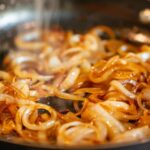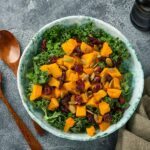Introducing solid foods to your baby is a milestone event that many South African parents look forward to. As your little one reaches 6 months old, their nutritional needs begin to expand beyond milk alone, opening up a whole new world of flavors and textures. However, navigating this stage can also be challenging as not all foods are suitable for your baby’s delicate digestive system and developing body. It’s important to be cautious about what to introduce to ensure their health and safety. Here are 10 foods that you should avoid feeding your 6-month-old to help them have a safe and healthy weaning journey.
Honey
- Reason: Honey can contain spores of Clostridium botulinum, which can cause infant botulism, a rare but serious form of food poisoning. It’s best avoided until after the first year.
Whole Nuts and Peanuts
- Reason: These pose a high risk of choking. Instead, nut butters can be introduced in small amounts, but ensure they are thin or well-mixed into other foods to reduce the risk of choking.
Cow’s Milk
- Reason: As a drink, cow’s milk isn’t suitable for babies under the age of one because it doesn’t contain the necessary nutrients babies need and can strain their developing kidneys. Small amounts can be used in cooking or mixing with foods.
Hard, Raw Fruits and Vegetables
- Reason: Hard fruits and vegetables like raw carrots or apples pose a choking hazard. Instead, steam and puree them until your baby is better able to chew and swallow.
Uncooked Eggs
- Reason: There’s a risk of salmonella with uncooked or partially cooked eggs. Make sure all eggs are thoroughly cooked before offering them to your baby.
Added Salts and Sugars
- Reason: Babies’ kidneys are not yet mature enough to deal with added salt, and excess sugar can lead to a preference for overly sweet foods, contributing to poor eating habits later.
Sticky Foods
- Reason: Foods like marshmallows, gummy candies, or thick globs of peanut butter can be tough for babies to manage and increase the risk of choking.
High-Mercury Fish
- Reason: Fish with high levels of mercury, like swordfish, shark, king mackerel, and tilefish, should be avoided due to potential effects on a baby’s developing nervous system.
Choking Hazards like Grapes, Cherries, and Large Pieces of Meat
- Reason: These foods can easily block a child’s airway. Always cut them into small, manageable pieces and cook meat thoroughly until it is very tender.
Excessive Spices or Hot Foods
- Reason: While mild spices can be introduced to broaden a baby’s palate, overly hot or strongly flavored foods may be off-putting or uncomfortable for babies, possibly even causing irritation to their digestive system.
Introducing solids is an exciting and crucial phase in your baby’s development. Always ensure that the textures and sizes of food are suitable for their development stage and consult with a pediatrician if you have concerns about allergies or nutritional needs. It’s also a good time to start establishing good eating habits that will benefit them for life.








